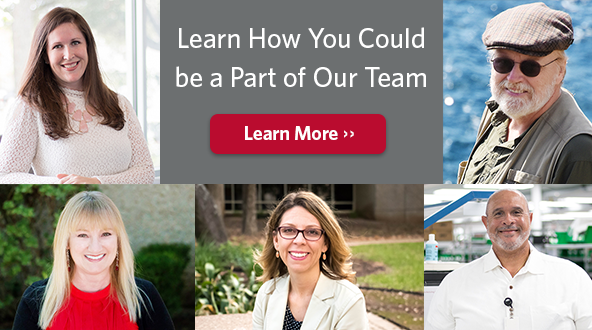Preparing documentation and training for Luminex products was a lot easier back when we only sold one instrument. Alan Virden, Hardware Product Services Manager, knows that from personal experience. He joined Luminex in 1998 even before the company launched its first commercial product. Today, he plays an integral role for all of our products — and also keeps the rest of our team entertained with tales of those early days.

Q: What are your responsibilities at Luminex?
A: We get the field service team ready for new products that are coming online with manuals, training materials, and test fixtures. We also provide phone support for all Luminex products and release all the documentation for old and new products. We trend failures and help the service engineers when they’re on site with customers. Generally we’re trying to make our products more reliable by identifying and addressing problems.
Q: How did you get interested in this career path?
A: I was hired in 1998 in the R&D department. We didn’t have a commercial product; it was still an idea on a board. After some prototyping, we shipped out our first instrument, but it didn’t work. I had nothing to do over the Christmas holiday, so they sent me out there to repair this instrument. That’s how field service was born at Luminex. I created the field service department, and as it grew, I left the R&D team and moved more into this job that I have today.
Q: What drew you to Luminex?
A: I was coming for a job interview with a company on the same street when I just happened to see the Luminex sign. I dropped off an application, and that’s how I got the job.
Q: What did you do before?
A: I worked for Texas Instruments on black projects for the Department of Defense.
Q: What made you stay at Luminex all this time?
A: I remember one of the founders of Luminex asking, did you ever think you could make a product that could change the world? Our products have brought healthcare to places that otherwise wouldn’t be able to have it. Once we heard from a doctor who treated indigenous people in the Amazon. He was excited about our product because it let him diagnose people much faster than if he had to collect samples and send them off to a lab. Sometimes by the time results came back, the person had passed on. With our product, he could get the results quicker and save the person’s life. That’s why I’ve been here so long.
Q: Rumor has it you did some unique product development in the early days for a holiday party.
A: This was in 1999 when there were only about 50 people at Luminex. We decided to have our Christmas party on site, and the CEO said every department had to come up with a signature drink. Well, the R&D department was three hardware guys and two software guys, and we thought it would be too easy to just come up with a drink. So we took a Luminex 100 and refitted it with tubing and special software to make drinks — either a Bloody Mary or a screwdriver. It was such a hit.
Q: If you weren’t in this job at Luminex, where would you be?
A: I’ve always been interested in archaeology so that I may have done something in that line of work.
Q: If you could solve any clinical or genetic challenge, what would it be?
A: Alzheimer’s. My father has been diagnosed with Alzheimer’s, and it is a sad thing to see him change and how he gets frustrated with the simple things.
Q: What is something about you that no one at Luminex knows?
A: A lot of people don’t know that I was an Eagle Scout. For my big project, I helped rebuild a church in a really poor area. You have to do the project from start to finish, so I raised money, did the work, and got people to help out.
Q: What is your favorite thing to do in Austin on the weekend?
A: I like to go to festivals. Austin has so many festivals—everything from food to music and more. There’s a great variety.
